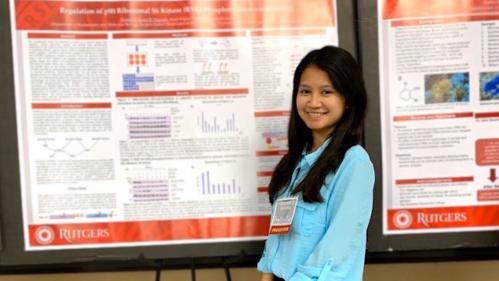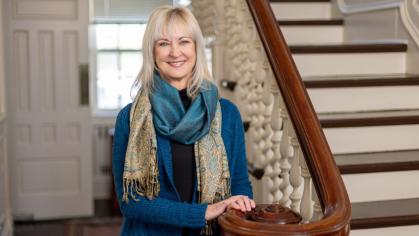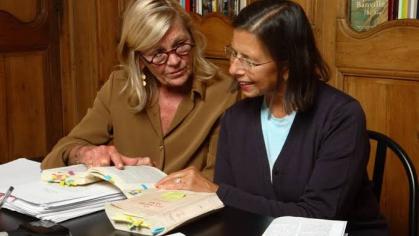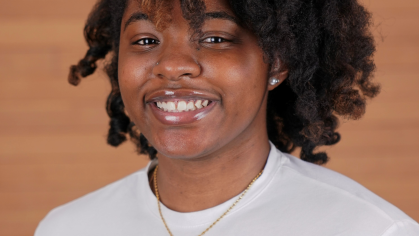While her ultimate goal was to gain experience in the industry before pursuing a Ph.D., recent Douglass alumna Heineken Queen Daguplo DRC'20 has instead spent the days since May evaluating her next steps. Like many 2020 graduates, Daguplo finds her plans significantly altered due to the global pandemic.
At Douglass, Daguplo excelled as a biochemistry major, Project SUPER Research student, and a George H. Cook Scholar. Daguplo is a dedicated scientist, with a passion for her field that resulted in a National Institute of Health funded research position. As a biochemistry major, Daguplo's work often focuses on the small things. Her George H. Cook Scholar thesis involved the activities and behavior of a microscopic protein which plays a role in metabolic diseases such as cancer.
“My research deals with the cellular and molecular levels—those that cannot be seen by the naked eye,” she said. “Although this may be true, the knowledge that we discover in this micro level can be translated in such a way that it is understood or can be applied to a macro scale.”
For Daguplo, her time at Douglass was a period of growth and enlightenment.
“The opportunities offered by DRC that instantly captivated me, one of which was the STEM living learning community, Bunting-Cobb,” she said. “In addition to research, the courses I took with Douglass, including Knowledge and Power and Global Village classes, opened my eyes and familiarized me with certain issues that were unknown to me before.”
Daguplo’s scientific accomplishments during her time at Douglass were integral to the progression of her career. Yet now, the wisdom she garnered in the laboratory transcends the limits of research—it provides a guide for her life.
“Resilience was one of the important things I learned from my experience in laboratories,” said Daguplo. “Throughout the scientific process, it was imperative to constantly remind myself that I’m trying to address questions that have not been answered before, and that challenge was one of the reasons why I immersed myself in research: to bring light into the unknown.”
The unknown is exactly what Daguplo and many of her fellow classmates are facing upon their graduation from college. The Class of 2020 entered the post-undergraduate world in the midst of unprecedented levels of economic uncertainty, and transitioning from college to adulthood has never been more different.
“The unpredictability of the pandemic was not just challenging, but more so paralyzing,” she said. “It became too difficult to plan ahead since nobody knew what was going to happen the following months, let alone the next day. When I officially graduated, I was so committed to stick with my original plan to work as soon as I got my degree. However, different issues continue to arise along with the pandemic, and having to deal with these things all at once can take a toll.”
Persistent, ambitious, and talented, Daguplo has made the most out of the temporary disruption to her plans—using her time away from school and work to develop other hobbies and spend time with family. Particularly, Daguplo has revisited her passion for creative writing.
“I’ve been writing copiously in these recent months,” she said. “I still plan on working in the industry before pursuing a Ph.D., that never changed, but right now I am delighting in the fact that I can spend time with the people I love while I still have the time to do so. I am privileged to be able to put my plans on hold and take time for myself and the people around me. I know that not everyone is able to. The events that ensued from certain issues and the pandemic have been such eye-openers, and they certainly influenced the way I will further navigate this world.”
Moving forward, Daguplo’s routine in the lab offers some valuable insights for recent graduates everywhere taking on the challenges of the world day by day.
“At the end of the day in the lab, I go over everything I did, interpret my results, assess the different variables to see what can be changed, and I try again the following day," she said. "That's just like life too."



